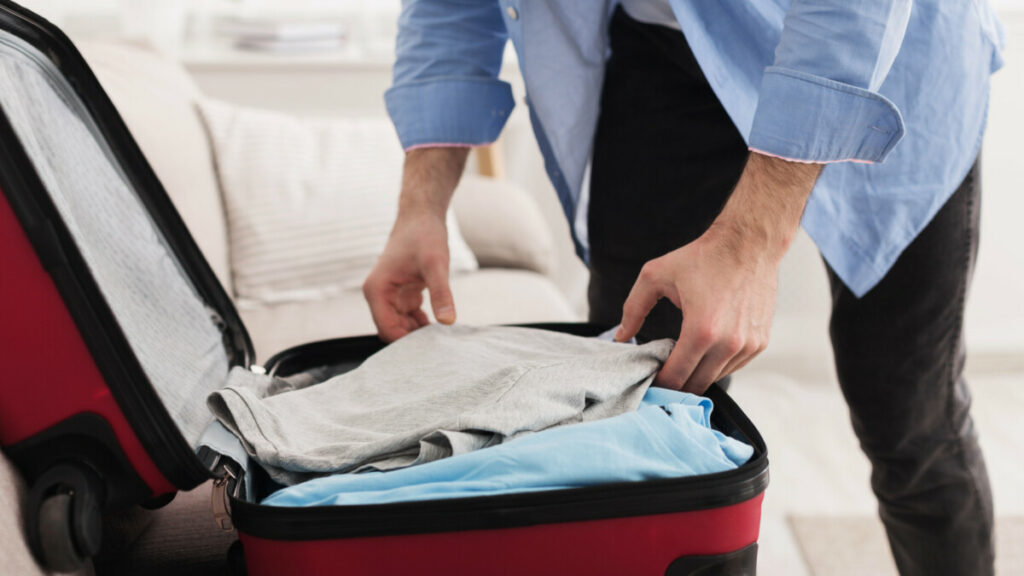Many people dread business trips. It is not like a vacation where you can adjust your itinerary as you wish, and do things at your leisure. Business trips usually involve tight itineraries and cramming lots of work into a small amount of time. Not only that, long waits in airports or canceled flights can be an absolute nightmare.
Following these five simple steps will ensure that your trip goes smoothly and is enjoyable.
1. Prepare an Itinerary and Review Company’s Travel Budget Policy
First, create an itinerary for yourself that includes the dates, times, and locations of all your events and commitments. This would include meetings, conventions, conferences, training sessions, phone calls, and parties. Include when each event starts as well as when and where you would need to arrive.
This itinerary will give you the information you need to make travel arrangements and hotel accommodations. It will also help you to be on time and make it to each event early.
You should also look over the company’s travel budget policy. Your work may be able to cover some or all of your expenses. Oftentimes companies will cover lodging, flights, ground transportation (like a car rental, train, taxi, etc), tips, and even some meals. They might even pay for the expenses of a travel companion.
There are several ways in which employers pay for business travel. Here are a few of the methods:
- Company credit cards are usually given to employees who travel frequently for business. Many companies will have strict rules on what employees can and cannot charge to the company credit card. Review the policies and be sure to collect receipts or other documentation if necessary.
- Some companies require employees to pay for daily travel expenses with cash and then fill out an expense reimbursement report. Later, the company would reimburse some or all of the cost.
- A per diem is a daily allowance that is given to an employee to cover expenses. The employee would be required to cover anything that exceeds the per diem amount, or if they spend less, they are generally allowed to keep the money that remains.
Check with the Human Resources department or your manager to understand the travel budget policy. If there is something that you think should be covered but isn’t, it doesn’t hurt to ask, especially if it is essential for the trip.
2. Book Travel and Lodging Accommodations
The process of booking travel and lodging for business is much different than planning for a personal trip or vacation. Many people book personal vacations based on deals rather than convenience. For example, a two-hour layover might be fine for a personal trip, but when you are on a business trip, sometimes it is worth paying extra for a direct flight or a more convenient departure or arrival time. (Source)
Using the itinerary you created, look at travel comparison sites to see who is offering the best deals. Your company will appreciate you being prudent with their money. Consider not only flights but also ground travel. Do some research on the location to figure out if it is better to travel by car or by public transportation.
If you only have one location to be at, select a hotel that is nearby. You don’t want to be 30 or 45 minutes away from your meeting and then get stuck in traffic.
Refer back to your company’s travel policies, they may have a preferred hotel that will allow you to get a good deal.
Don’t forget to check the hotel amenities. You will probably want free Wi-Fi, TV, gym, and room service. Many hotels offer free breakfasts, but oftentimes, they serve it too late for early-rising businesspeople.
3. Prepare Travel Documents.
Depending on where you are going and how long you will be staying, you might need several different kinds of travel documents. Do some research to find out if any of the following items will be necessary for your trip.
- Domestic flights typically only require one form of photo ID, but it is a good idea to bring a passport as a backup to your driver’s license. If you lose one of the two, or if your wallet gets stolen you will probably not be able to board the flight and might even lose the cost of the ticket. If you bring a backup, you will still be able to get home. (Source)
- If you are traveling internationally, you will need a passport and you might need a visa as well.
- Make sure that you know how to access your tickets. Will you get them printed off, or can you have them on your device? Again, you can have both as a backup.
- Some countries require certain vaccinations (especially post-pandemic). You might not think you need it, but then certain restaurants or businesses will require it to let you in.
- Bring hard copies of your travel details, like destination addresses, confirmation, and receipts. While most people have all of this on an electronic device, having a hard copy might save you if you can’t access your device for some reason.
4. Pack Essentials

Make a packing list. Writing this out in advance will prevent you from forgetting something in the rush to get out the door. Hotel Engine gives a basic packing list for a business trip that includes:
- Tablet
- Laptop
- Chargers for all electronic devices
- PowerPoint Presentation
- Wireless hot spot device (if you have a smartphone, it will often have a hot spot setting you can use!)
- Clothing (uniforms, formal, business-casual, leisure, swimwear, travel wear, etc.)
- Promotional materials
- Business cards
- Handouts
- Briefcase, bag, purse, etc.
- Extra office supplies
If possible stick to a carry-on. This will save you time waiting for your checked bags at your destination and will prevent the disaster of dealing with a lost bag.
Wear the bulkiest clothing on the plane to help you fit more in your carry-on. (Source)
If you are staying for a longer period of time, your hotel might offer a dry cleaning service so that you can pack less.
5. Prepare for Your Meeting/Event
Don’t get so flustered in the craziness of travel that you forget the whole purpose of the trip! Find out what you should wear, what information you should know, and the names of the people you’ll meet. If you have a presentation or other materials, make sure that the host has all the equipment you will need.
Think about how you can make a good impression and deliver what is expected of you.
Putting in some time beforehand will help you to do this and feel like you were successful in what you came to do.


